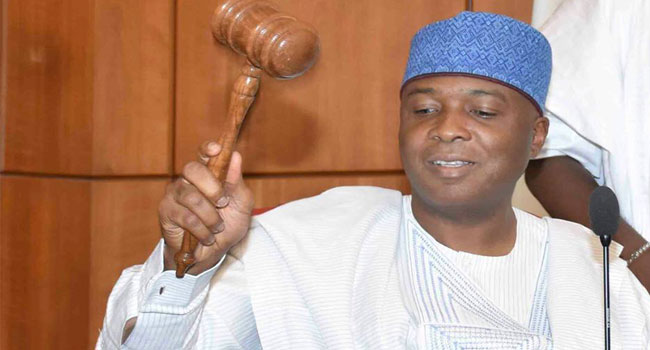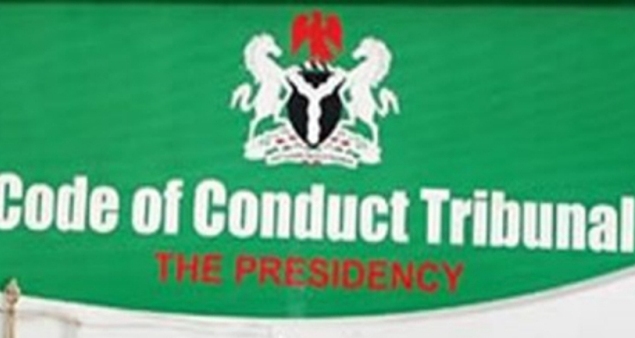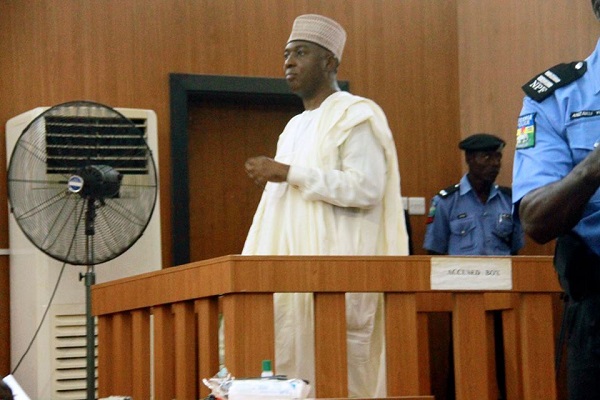The Court of Appeal sitting in Abuja, on Wednesday, nullified the decision of the Code of Conduct Tribunal, CCT, which found former Minister of Niger Delta Affairs, Elder Godsday Orubebe, guilty of allegation that he falsely declared his assets in 2007.

In a unanimous judgement, a three-man panel of Justices of the appellate court led by Justice Mohammed Abdul Aboki, voided Orubebe’s conviction on the premise that the CCT verdict occasioned a miscarriage of justice against him.
Orubebe had in his Notice of Appeal marked CA/A/633c/2016, urged the appellate court to not only set-aside judgment the Justice Danladi Umar-led tribunal delivered against him on October 4, 2016, but to equally discharge and acquit him of the charge.
The tribunal had in its verdict, said it was satisfied that Orubebe shielded his ownership of Plot 2057 Asokoro District, Abuja.
Justice Umar who maintained that there was merit in the one-count amended charge the Federal Government entered against the former Minister, held that the said property should be forfeited to the government.
The tribunal noted that though Orubebe claimed that he had already sold the land before he submitted the assets declaration form, the title documents still had his name six years after.
Even though the tribunal confiscated the land from the defendant after it found him guilty of the offence of false declaration of assets contrary to section 15 of the CCB & Tribunal Act, Cap C15, Laws of the Federation of Nigeria 2007, it however declined to ban him from holding any public office.
Meanwhile, dissatisfied with the verdict, Orubebe, through his lawyer, Mr. Selekowei Larry, SAN, raised three grounds he said the appellate court should consider and nullify his conviction.
He prayed the appellate court to determine “Whether the tribunal was right in convicting the defendant for false declaration of plot 2057, Asokoro District, Abuja.
“Whether the tribunal was right in holding that the said plot 2057 remained or remains the defendant’s property despite exhibits D1, D2, and D3 being documentary evidence of transfer of interest executed in favour of one Divention Properties Ltd by the defendant.
As well as, “Whether the tribunal was right in suo motu raising the issue of non registration of Divention Properties Ltd’s title in respect of plot 2057 Asokoro District, Abuja and convicting the defendant thereon without granting party opportunity to be heard thereon”.
The embattled ex-Minister prayed the tribunal to allow the appeal on the premise that the prosecution woefully failed to prove the false declaration of assets against him.
According to him, “The said plot said not to be declared in the charge on September 26, 2007 was not yet given to the appellant as at then.
“The appellant did not make any declaration of assets on June 29, 2011 as alleged on the charge. He only made a declaration on June 28, 2011, by which time he was no longer the owner of plot 2057. The plot 2057 Asokoro District, Abuja, was a gift of empty land by the respondent (FRN) which he received on June 13, 2011 and parted with the same day.
“Having sold the said plot and executed D1, D2 and D3, he could not be reasonably expected to still declare it as his assets.
“That the tribunal based its decision on an issue that was not put before it, but raised suo motu by it without giving parties opportunity to be heard, thereby rendering it a nullity
“Accordingly, that the decision of the tribunal be set aside, the conviction quashed and the appellant be discharged and acquitted”.
While upholding the appeal on Wednesday, the appellate court panel held that the tribunal went beyond the case that was brought before it by the prosecution.
The court held that Orubebe’s trial was not based on his none declaration of title deed of the said property, but his alleged false declaration of his assets.
It stressed that as such, the unregistered instrument of transfer of the said property was admissible evidence in proof of the payment of purchase price, which showed that the property was already acquired by Divention Properties Ltd.
The appellate court stressed that the appellant could not have declared the same property he had parted with.
The court faulted the CCT for raising the issue of non-registration of title deed of the property suo motu (by itself).
“On the whole, it is our view that this appeal succeeded on its merit and is therefore allowed. The appellant is accordingly discharged and acquitted”, the court held.


